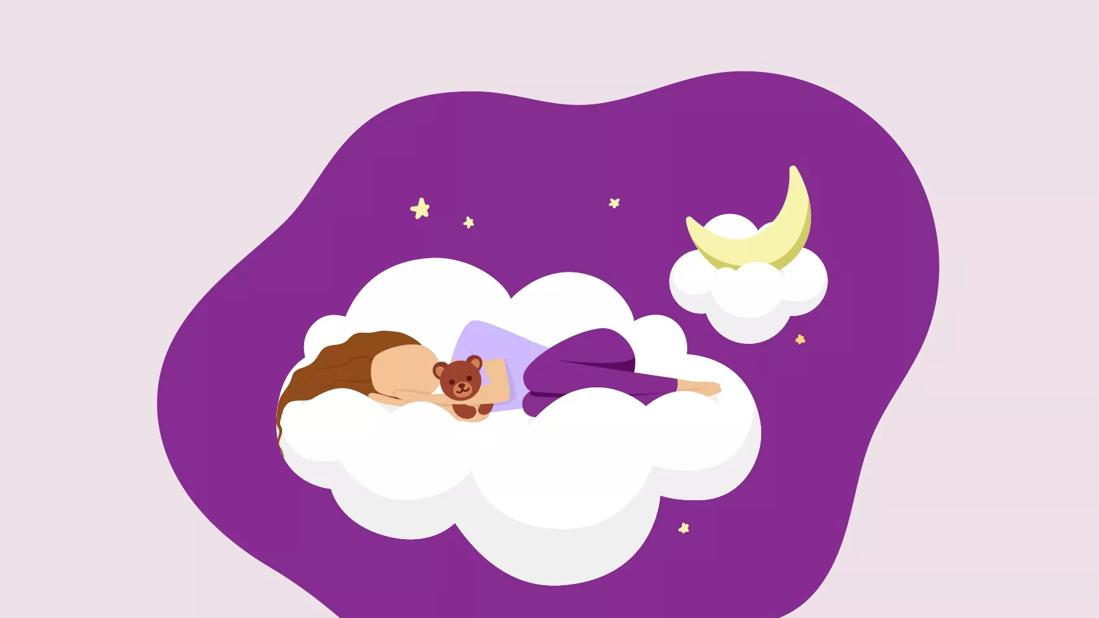While the supplement is safe, it’s best to talk to your child’s pediatrician first

As summer winds down and thoughts of back-to-school creep into your and your children’s heads, you may start to worry about their sleep routine (no more family movie nights until midnight!).
Advertisement
Cleveland Clinic is a non-profit academic medical center. Advertising on our site helps support our mission. We do not endorse non-Cleveland Clinic products or services. Policy
And if your kid struggles to fall asleep or stay asleep, you may think of using a melatonin supplement to help aid their ZZZs.
But is melatonin safe for kids?
Pediatricians Gina Robinson, MD, and Timothy Benik, DO, explain how the supplement works, discuss dosages and what parents need to know.
Not necessarily, but Dr. Robinson says a melatonin supplement shouldn’t be your first-line defense if your child is having sleep issues.
“A lot of sleep issues in children are behavior-driven,” Dr. Robinson says. “So, when we work on the behaviors, we can work on those sleep issues.”
She acknowledges that working on those problems can be frustrating and may take a while to work.
“A lot of the time, parents are at their wit’s end, so they want something that will work quickly,” she adds. “And we don’t always think about the fact that it took a long time to develop these patterns and behaviors.”
Melatonin is a hormone that’s naturally produced by your body to help calm you down and prepare for sleep. The pineal gland in your brain starts producing melatonin as it gets darker outside. During that time, your levels of cortisol start to drop and you start to feel tired.
But some parents turn to a supplement form of melatonin to help their children fall asleep.
Advertisement
“The general standard of dosing for children is 1 to 3 milligrams, but this, of course, will depend on the age of the child,” says Dr. Benik. “It’s best to talk to your pediatrician about the best dosage for your child.”
If your child is struggling with sleep issues, Dr. Robinson and Dr. Benik recommend the following.
Yes, it’s vital that you set up routines with your newborns and establish healthy sleeping habits right off the bat.
“When we don’t have a bedtime routine, some babies don’t get the cues,” says Dr. Robinson. “Some babies will sleep anywhere, but some babies don’t settle down well. And when we don’t give them a set of cues to let them know it’s time to wind down to go to bed, they don’t know how to do that.”
It’s the middle of the night and your child wakes up. Do you wait to see if they fall back asleep or do you rush into their room to comfort them?
Not letting your child learn how to self-soothe can be an issue.
“If you don’t ever let a baby fuss or cry a little bit or learn how to self soothe, it’s going to be harder for them when you really want them to go to sleep,” notes Dr. Robinson.
There are different sleep training models like the “cry it out” method or the “graduated extinction method,” which is endorsed by the American Academy of Pediatrics (AAP).
Work in an amount of time to your bedtime routine for a transition period — whether that’s an hour or just a few minutes — to help your child calm down and relax.
“A warm bath or a shower at night has shown to help,” says Dr. Benik. “And avoid electronics.”
Don’t overlook the power of quiet time, whether that’s reading a book in their room or putting on some soft music.
“Having that time where the activity level is gradually going down and that energy levels going down is key,” says Dr. Robinson.
Both Dr. Robinson and Dr. Benik recommend that you speak to your child’s pediatrician about the right dosage of melatonin.
“It’s not necessarily that it’s a certain brand that I would recommend or that buying it from a certain store is better,” says Dr. Robinson. “It’s just making sure that the individual ingredients in any supplement are safe and don’t have any toxic side effects that you have to worry about.”
It’s also important to consider that the U.S. Food and Drug Administration (FDA) doesn’t regulate supplements. So, what the label says you’re getting might not be accurate.
“Factor in that we know a lot of supplements — melatonin especially — don’t contain the exact amount of melatonin per capsule, sometimes lower but in most cases many times higher,” says Dr. Benik. So, it’s best to check with your child’s pediatrician before turning to supplements on your own.
Advertisement
Learn more about our editorial process.
Advertisement

Your child may be ready if they’ve outgrown their crib or keep escaping it, or if they seem mature enough to make the switch

Babies can be noisy little sleepers! Blame small nasal passages and short sleep stages

Experts recommend having infants sleep in your bedroom but not in your bed

This sleep training method can bring quick results, but it may be stressful for parents

Help children get their needed rest by teaching good sleep hygiene, using mindfulness techniques and creating a calming environment

This technique involves picking up your baby to soothe them if they fuss or cry, but then, returning them to their crib before they fall asleep

Also known as graduated extinction, ‘Ferberizing’ teaches your child to self-soothe and fall asleep on their own

This technique can initially take a lot of time and patience, but it can also comfort your child as they learn to fall asleep on their own

Wearing a scarf, adjusting your outdoor activities and following your asthma treatment plan can help limit breathing problems

Your diet in the weeks, days and hours ahead of your race can power you to the finish line

When someone guilt trips you, they’re using emotionally manipulative behavior to try to get you to act a certain way